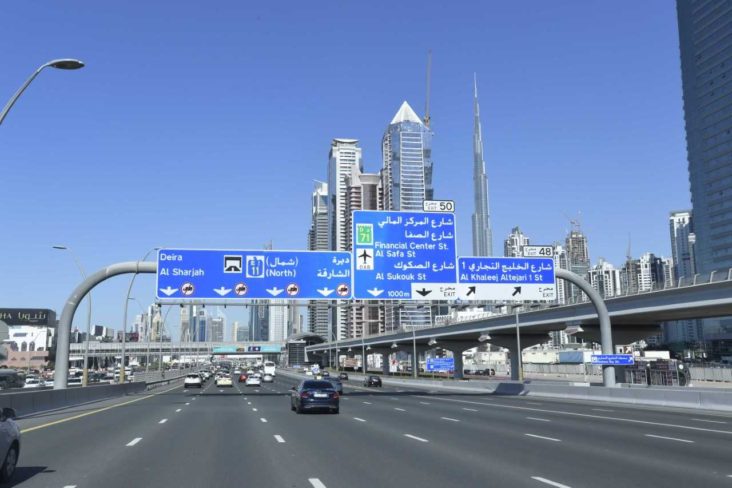RTA Construction Seeks To Ease Traffic Flow Along Sheikh Zayed Road

Dubai’s Roads and Transport Authority (RTA) has carried out a series of improvements at seven locations along Sheikh Zayed Road to ease traffic congestion and increase the flow of traffic.
“These improvements are part of RTA’s new vision, aimed at being ‘The world leader in seamless and sustainable mobility’ through considerably cutting tailbacks along this important traffic corridor and its extensions. Such improvements involved a substantial increase in the capacity of the road and contributed to the smooth flow of traffic,” noted Eng. Maitha bin Adai, CEO of Traffic and Roads Agency, RTA.
RTA ordered seven improvements on Sheikh Zayed Road. The first being the widening of Exit 39, near Mall of Emirates, from one lane to two lanes, which doubled the capacity of the road from 1800 to 3600 vehicles per hour. As such, it shorted the journey time from Sheikh Zayed Road to Umm Suqeim from 12 minutes to 1.45 minutes and reduced the length of the queue from 1000 to 50 metres.
The second improvement involved construction on Umm Amara Street in the direction of the Safa Park Interchange to ease the bottleneck at the R/A and increase the flow of traffic in the direction of Abu Dhabi.
“The third improvement entailed changes in the free right lane branching out from 2nd of December St to Sheikh Zayed Road in the direction of Abu Dhabi. The work included increasing the storage lane capacity, which increased the traffic flow on the Trade Centre R/A and reduced the length of the queue,” said Bin Adai.
The fourth improvement included construction on Al Thowima Street at Al Barsha near the Novotel Hotel, to ease congestion on the service road and improve the accessibility to internal areas of Sheikh Zayed Road.
Other improvements were near the fourth interchange in the direction of Sharjah at the Al Manara Exit, where improvements were made to the entry and exit points of the interchange to ease the traffic flow on the Sheikh Zayed Road and reduce the points of congestion. Also, the work increased the capacity from 10,800 vehicles per hour to 12,600 vehicles per hour.
Works also included the addition of one lane near the exit to the service road, after Noor Bank Metro Station and continuing in the direction of the exit to Umm Al Shief.


